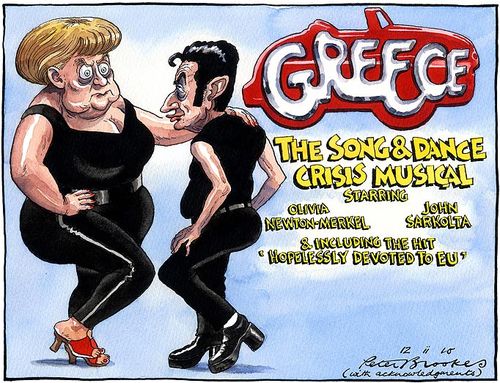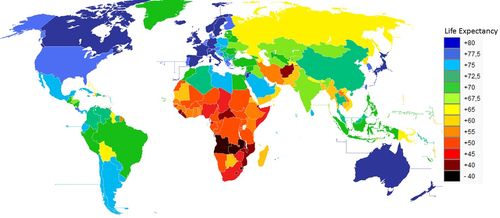
News came out yesterday that Michel Barnier has created a high-level expert group to tackle reforms to the structure of the EU banking sector.
Erkki Liikanen, Governor of the Bank of Finland, is going to be the Chairman of the Group, and Carole Sergeant, chair of the HM Treasury steering group in the UK, is tasked with devising a suite of ‘simple’ financial products.
The Group will start work immediately, and present final report to the Commission by the end of the summer.
There may be all those cynics out there, expecting the Eurozone to implode and everything to fall apart, but it won’t happen whilst the Sarkozy-Merkel train rumbles along.

Source: The Sun
Meantime, some interesting stats from the EU were released this week in the European Commission’s Eurostat Guide .
The Guide shows how the EU is performing against other major geographies (USA and Japan), as well as how the EU27 are faring against each other.
It’s an interesting picture, as the UK is nowhere near a leading performer in the EU Champions League tables.
For example, who earns the most? Who lives longest? Who has the most unemployed? And more.
Here’s a couple of samples.
Who earns the most?
This is the average GDP per inhabitant:
- Luxembourg € 79,500
- Norway € 64,500
- Switzerland € 51,200
- Denmark € 42,500
- Sweden € 37,000
- Netherlands € 35,400
- Ireland € 34,900
- Austria € 34,100
- Finland € 33,600
- Belgium € 32,600
- Germany € 30,300
- Iceland € 29,900
- France € 29,800
- UK € 27,400
- Italy € 25,700
- Spain € 22,800
- Cyprus € 21,600
- Greece € 20,100
- Slovenia € 17,300
- Portugal € 16,200
- Malta € 14,800
- Czech Republic € 14,200
- Slovakia € 12,100
- Estonia € 10,700
- Hungary € 9,700
- Poland € 9,300
- Lithuania € 8,400
- Latvia € 8,000
- Romania € 5,800
- Bulgaria € 4,800
Eurozone average € 27,600
EU27 average € 24,400
USA € 35,400
Interestingly, this does not correspond that closely to life expectancy.
Who lives longest?
Average Men Women
- Switzerland 82.25 79.9 84.6
- Spain 82.2 79.1 85.3
- Iceland 81.95 79.8 84.1
- Italy 81.8 79.1 84.5
- Sweden 81.6 79.6 83.6
- France 81.5 78 85
- Malta 81.4 79.2 83.6
- Norway 81.15 79 83.3
- Cyprus 81.1 78.6 83.6
- Ireland 80.95 78.7 83.2
- Netherlands 80.95 78.9 83
- Luxembourg 80.7 77.9 83.5
- Austria 80.7 77.9 83.5
- Greece 80.6 78.4 82.8
- Germany 80.5 78 83
- UK 80.4 78.3 82.5
- Finland 80.2 76.9 83.5
- Belgium 80.05 77.3 82.8
- Portugal 79.75 76.7 82.8
- Slovenia 79.75 76.4 83.1
- Denmark 79.3 77.2 81.4
- Czech Republic 77.7 74.5 80.9
- Poland 76.4 72.1 80.7
- Estonia 75.7 70.6 80.8
- Slovakia 75.5 71.7 79.3
- Hungary 74.65 70.7 78.6
- Bulgaria 73.85 70.3 77.4
- Romania 73.6 69.8 77.4
- Latvia 73.5 68.6 78.4
- Lithuania 73.45 68 78.9
Eurozone average 80.65 77.8 83.5
EU27 79.4 76.4 82.4
USA 78.3 75.6 80.8
This is even more interesting when you map it out worldwide (doubleclick image to enlarge):

Meanwhile, if you’re seriously into this stuff, you can checkout the changes over the last few years since the Economic & Monetary Union started.
Chris M Skinner
Chris Skinner is best known as an independent commentator on the financial markets through his blog, TheFinanser.com, as author of the bestselling book Digital Bank, and Chair of the European networking forum the Financial Services Club. He has been voted one of the most influential people in banking by The Financial Brand (as well as one of the best blogs), a FinTech Titan (Next Bank), one of the Fintech Leaders you need to follow (City AM, Deluxe and Jax Finance), as well as one of the Top 40 most influential people in financial technology by the Wall Street Journal's Financial News. To learn more click here...




















